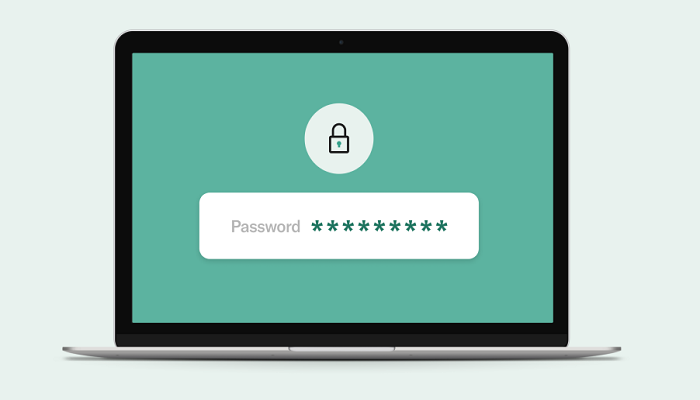For many years now, the internet has been the best source of information. It is almost impossible for the world to survive if the Internet is taken away.
Billions of the world’s population make use of the Internet daily, all for different purposes.
Some earn their daily living from the internet, some are on it for fun, and most use it to educate themselves. But there are some people on the internet to scam others.
Because of this group of people, the internet is no longer safe; there is now a big issue of internet insecurity.
Now the big question is, how do these people perform this cyber-crime?
How do they do it? What do they stand to achieve, and how can it be avoided?
Types Of Online Scams You Must Try To Avoid
1. Online Job Scam
Online job scams are real. If you are not a victim, you may not believe that it exists.
In recent days, fake online jobs appear more genuine than authentic ones. It is because the scammer will give you perfect attention and try to block every loophole that can be suspected.
Online job scams are in a different format, depending on how you play along. Even if you receive a call from the ‘so-called’ employer, or you saw their website, there is still no guarantee.
At last, the whole game will boil down to paying a sum of money for a particular purpose or another, once it comes to that keep off immediately. And if your account detail is asked for whatever reason never give it out.
2. Online Dating Scam
Scammers are on several dating websites looking for hookups. No matter how real they may sound, you must be very careful, and make sure you never get emotional for online love.
Most of the scammers use fake profiles, few of them may use their real profiles. Even if you meet them one-on-one, or make use of video calls, it still does not prove they are genuine.
These scammers are so smart that they can predict your next move even before you make it.
They have the patience to the highest core; they don’t mind being in the friend zone for years before throwing their advances on you, to make you think they are real. The only way you can identify these people is to be smarter than them.
If you end up having an emotional connection with them, then they can easily; fraud, kidnap, abuse, blackmail, or gain access to your data.
3. Online Shopping Scam
There are lots of fake online stores; some of them have a unique design and some are cloned to look like a trusted online store.
Always be sure of the URL you are buying from – some URL seems very similar but not the same, take for example: “www.jumia.com.ng” is different from “www.jumai.com.ng” and “www.jumia.com” its confusing isn’t it.
Scammers can create a fake website and maybe send a convincing email. For instance, “buy today at 80% discount”.
If you click and try to make purchases, they will receive all your payment details in their back-end and redirect you to the original website.
You may end up thinking it’s a network issue as you have been redirected, not knowing that you have been scammed.
By this, they now have your credit card details and can easily defraud you.
Ensure you are at the right website URL at all times, especially when you need to make an online payment.
4. Lottery Scam
In a scam of this nature, you may get a phone call or an email with details that you have won a lottery draw.
Depending on the scope the scammer is using, you may be told to send a certain sum of money before you can claim your prize. This type of scammer makes it hard to believe that it is a scam; they may even have a website, make video calls, and have a series of live interviews with you, to make you pay whatever sum they are asking.
5. Ponzi Scam
A Ponzi scheme is an online investment platform that promises high rates of return with little or no risk to investors.
It is designed in a way that generates returns for existing investors by acquiring new investors.
Most people who are involved in Ponzi investment don’t really understand how it works as long as there is a high level of return they don’t mind.
But most Ponzi scheme lasts only for a short while before crashing once they crash all who newly invested will lose all their investment.
A scammer can develop a Ponzi website and make it very attractive in the beginning. At a point, he will channel investment gains to himself and make the system crash.
6. Hacking Scam
The hacking scam exists in different ways, depending on which the scammer decides to use.
In most cases, the scammer tries to infest people’s computers with all sorts of viruses -, especially spyware. It will monitor and report all activities done on the infected computer. They may hide the virus in an email attachment or online free download.
To avoid being a victim of this kind of scam, you must have to keep your antivirus up-to-date.
Also, you must be very careful of where you download your files from, and finally, never open or download an email attachment from an unknown sender.
How to Easily Identify an Online Scam
“You are already the winner! You need to supply us with some private data to be able to claim your prize. We’ll need your account details so we will be able to deposit your winnings. We’d also like your social security number, for tax functions as well.”
The green statement above is a typical example of an online scam, the “actual” is slightly more subtle and plausible.
Scammers have honed their craft over years and years of trial and error. They’ve discovered what works and what would not.
Most scams have characteristics that are similar or typical.
Let’s check out several indicators of an online scam.
1. If It Seems Too Good to Be True
Everyone knows the popular saying, “If it sounds too good to be true, then it probably is.” That is undoubtedly the case with regards to most online scams.
Scammers play on the truth that many individuals would like to get rich quickly. Or by studying easy methods to earn money with minimal effort, or be taught some cash-making secret that nobody else is aware of about.
Scammers dangle the carrot of easy cash, to be able to distract you from their goal. Typically the scammers will not ask you directly for your private data but will ask you to install a software program on your PC.
2. Cash is Concerned
Be it a lottery, prize, sweepstakes, phishing, or reshipping scam; cash is concern at all times. They could say that you’ve won money, your money is at risk, and so on.
However, the common factor is money. This must be your greatest indicator that you are perhaps looking at a scam. Never ever give out private data to anybody based on an e-mail you received.
Ensure you contact your financial institution at all times, and by no means should you use a real number in an e-mail, or on a website that you were directed to by an e-mail.
3. It’s Very Urgent! ACT NOW! Do not Wait!
Phishing scammers are known for making a false sense of urgency and trying to induce panic to be able to circumvent their victim’s rational thought processes.
Similar to how a sleight-of-hand magician makes use of misdirection, scammers use false urgency to distract you from their true purpose.
Always ensure you critically investigate an e-mail before acting on its content material. Take your time and verify on the Web for key phrases used within the e-mail to see if it is a scam.
If the e-mail claims to come from your financial institution, contact the customer care service number, and NOT the number you got in the e-mail.
4. We Need Some of Your Private Data
Scammers need your data to enable them to steal your identification. Never give out your social security number to who so ever online. You also need to stop giving out any private data in response to an unsolicited e-mail or a pop-up message.
5. Make Use of Fear
Most scammers use fear to deceive or trick you into doing things you would not usually do. They will inform you that something is flawed with your account or your PC to scare you.
Some scammers would even attempt to persuade you that they’re government officers and that you have committed a criminal offense akin to downloading pirated software programs.
They’ll use your fear to trick you into paying a “fine” to make everything OK. However, it’s nothing more than blackmail under pretense.
If somebody online ever threatens to hurt you physically or threatens your loved ones’ safety, then you need to contact your local law enforcement agency as quickly as possible.
How to Protect Your Personal Information from Scammers
1. Strong Passwords

Use strong, unique passwords for each online account. Consider using a password manager to keep your passwords secure.
We have an article on How to Best Secure Password Using Special Characters.
2. Two-Factor Authentication (2FA)
Enable 2FA whenever possible to add an extra layer of security to your accounts.
3. Avoiding Public Wi-Fi for Sensitive Transactions
Avoid conducting sensitive transactions, such as online banking, while connected to public Wi-Fi networks, which can be vulnerable to hackers.
Verifying the Legitimacy of Websites
1. Checking SSL Certificates
Look for the padlock icon and “https://” in the website’s URL, indicating a secure connection.
2. Reading Reviews and Ratings
Before making online purchases, read reviews and ratings from other customers to gauge the website’s legitimacy.
Educating Yourself and Others
1. Staying Informed About Current Scams
Stay up-to-date on the latest online scams by following reputable sources and news outlets.
2. Teaching Internet Safety to Family and Friends
Share your knowledge of online safety with loved ones to help them avoid falling victim to scams.
Reporting Scams
You can read our article where we explain broadly on how to report online scam
1. Contacting Law Enforcement
Report online scams to your local law enforcement agency to help prevent others from becoming victims.
2. Using Online Reporting Tools
Many websites and organizations have online reporting tools for reporting scams, making it easier to take action against fraudsters.
Recovering from Scams
1. Contacting Your Bank or Financial Institution
If you’ve fallen victim to a scam involving financial loss, contact your bank or financial institution immediately to mitigate the damage.
2. Updating Your Security Measures
After experiencing a scam, take proactive steps to update your security measures, such as changing passwords and monitoring your accounts closely.
Conclusion
The internet offers incredible opportunities, but it also exposes us to online scams.
By being vigilant, educating ourselves and others, and taking the necessary precautions, we can protect ourselves in the digital age.
Remember, staying informed is the first line of defense against online scams.
RELATED ARTICLES


